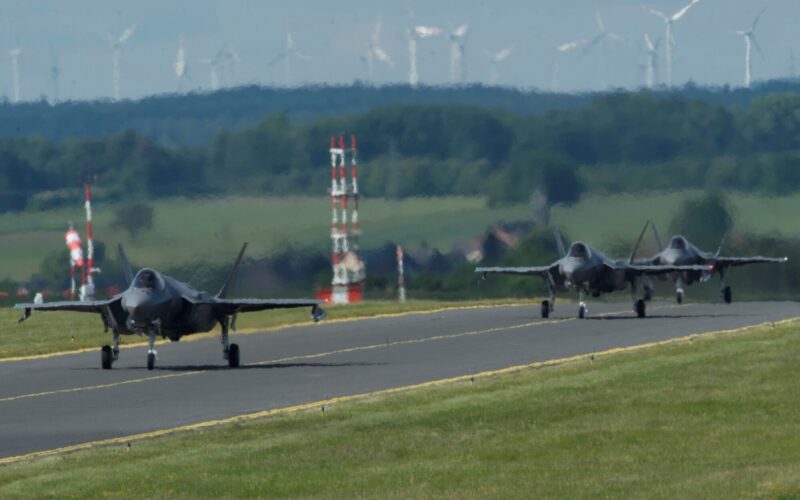Germany is about to discuss a potential order for 30 F-35A fighter jets with the United States during a meeting of heads of state in Washington.
For his first official visit to the White House since his nomination, German Chancellor Olaf Scholz is expected to discuss a long-considered order of Lockheed Martin’s fifth-generation fighters with US president Joe Biden, a source close to the matter told Reuters.
The Lockheed Martin F-35A may very well replace the nuclear-capable Panavia Tornado strike aircraft in the fleet of the Luftwaffe. It was initially ruled out in April 2020 for the benefit of 30 F/A-18 Super Hornets. The procurement debate led to the firing of Karl Müllner, the Chief of the Luftwaffe, in 2018 after the latter had openly lobbied for the F-35.
However, the Super Hornet procurement was postponed until after the German federal election in October 2021, as the stockpiling of nuclear weapons in the country was a source of debate during the campaign. The newly formed German coalition eventually renewed the country’s commitment to be part of NATO nuclear sharing.
In the meantime, the F/A-18F was removed from the National Nuclear Security Administration from the list of aircraft to be certified to carry the B-61 nuclear bomb. Questioned by the Federation of American Scientists over the change, the US Department of Defense explained that “there is not a requirement for the F/A-18F to be certified to carry the B61-12″.
Thus, the F-35A is expected to find its way to the table of negotiations once again, with the electronic warfare variant of the Eurofighter Typhoon (ECR SEAD) to replace 15 EA-18G Growler that were also supposed to be ordered.
A much-awaited replacement
The Panavia Tornado strike aircraft, which entered service in the 1970s, is the designated aircraft of the Luftwaffe to carry the 20 US-made B61 nuclear bombs stockpiled in Germany as part of NATO nuclear sharing. However, since 2017, the German Air Force has been looking for an apt successor for the aging Tornado, which is now even too old to participate in NATO missions.
A German Ministry of Defense report from April 2018 established that the aircraft’s wiring, software, and communication system lacked sufficient electronic protection against enemy interference. Additionally, the Tornado targeting computer does not have an IFF (Identification, friend or foe) system that enables the pilot to dissociate enemies from allies’ aircraft. Thus, the date for the retirement of the Tornado was moved from 2035 to 2025, 2030 at the latest.
The Eurofighter Typhoon was initially considered but, according to the United States, its certification would have required from three to five years. That schedule would not coincide with the updated timeline.

